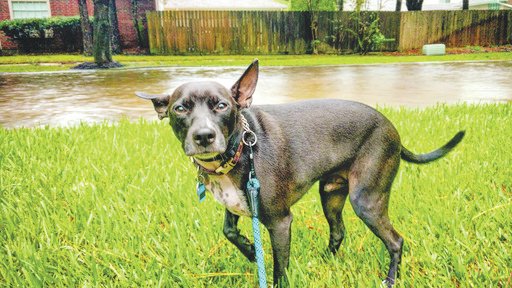Clay Humane offers tip for pet owners during Hurricane Ian
ORANGE PARK – Clay Humane, a nonprofit veterinary clinic in Orange Park, is encouraging pet parents to prepare for Hurricane Ian.
“People usually begin collecting necessities moments before a …
This item is available in full to subscribers.
Attention subscribers
To continue reading, you will need to either log in to your subscriber account, below, or purchase a new subscription.
Please log in to continueDon't have an ID?Print subscribersIf you're a print subscriber, but do not yet have an online account, click here to create one. Non-subscribersClick here to see your options for subscribing. Single day passYou also have the option of purchasing 24 hours of access, for $1.00. Click here to purchase a single day pass. |
Clay Humane offers tip for pet owners during Hurricane Ian
ORANGE PARK – Clay Humane, a nonprofit veterinary clinic in Orange Park, is encouraging pet parents to prepare for Hurricane Ian.
“People usually begin collecting necessities moments before a hurricane hits,” said Dr. Christian Broadhurst, senior staff veterinarian at Clay Humane. “Hasty shoppers sometimes forget to shop for their pets. In some cases, pet supplies run out before storms hit. Securing pet supplies is especially difficult for owners of reptiles, birds, fish as these animals have unique needs.”
Clay Humane recommends the following preparedness tips:
● Keep pets’ tags updated: Keep your animal’s identification tags updated with your contact information. The tag should consist of your pet’s name, your phone number and address.
● Microchip animals: Pets are at risk of becoming separated from their families during or after a natural disaster. Out of stress or fear, they may run away or hide in unfamiliar places. Microchips contain a unique number that can be read by a scanner. The chip is inserted under the animal’s skin and can assist with locating lost pets. Be sure to register your pet’s microchip number with your veterinarian’s office and the microchip company. Ensure the information is up-to-date.
● Secure the correct travel gear: Prepare a pet carrier before the storm hits. Select a spacious carrier that provides your pet with ample room to move in the event of prolonged evacuation drives. Label the carrier with your pet’s name and your name. To safely transport birds, bring a perch and paper towels for easy sanitizing. Also bring a timed feeder to ensure your bird receives timely meals.
● Create a disaster kit: Your disaster kit should include bottled water, four-day supply of pet food and medications, food and water bowls, animal first aid kit, litter and/or disposable garbage bags for pet waste, spare collars, leashes and harnesses, picture of animal in case you get separated, copies of pet’s medical records and for birds, carry a spray bottle with water for their wings. Include a strong bowl for reptiles to soak in and ample bedding for small pets like guinea picks or hamster.
● Know where to go: Not all shelters accept animals. Know what shelters allows you and your pets. For more information about pet-friendly shelters in your area and types of pets permitted visit:
● www.claycountygov.com/community/animal-services/programs-and-services/disaster-preparedness
● Study evacuation routes: Memorize your evacuation routes, as your GPS may not work well as a storm approaches or leaves. If you cannot find a shelter nearby, find boarding facilities outside of the evacuation area.
Clay Humane is a nonprofit animal welfare organization offering spay / neuter surgeries and other veterinary care at substantially reduced rates. Located in Orange Park, Fla., the clinic also offers humane education, pet behavioral counseling, pet therapy, wildlife protection and disaster preparation and response. Established in 1978, Clay Humane relies on grants, donations and fundraisers to operate and is committed to providing care to animals throughout Florida’s First Coast. For more information about Clay Humane, please visit clayhumane.org.







